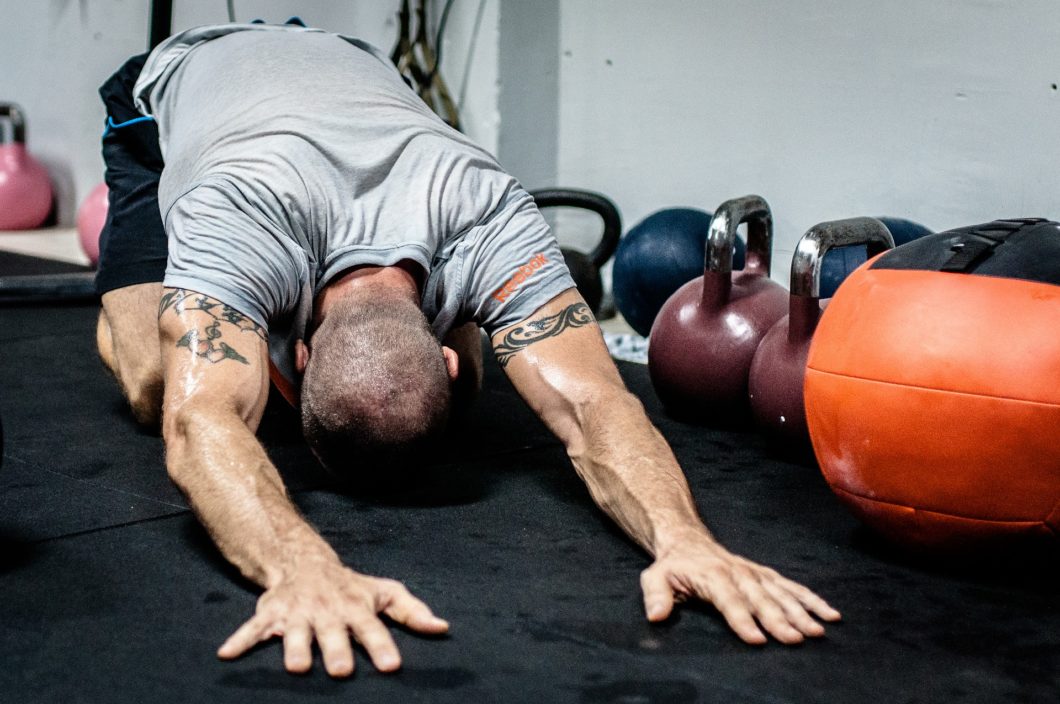The closer it got to game time, the more his heart would race. He was typically nervous before games and it wasn’t uncommon for him to vomit. After some self-exploration, he would come to learn that this feeling was not due to uncertainty in his game, but rather his body’s way of signaling to him that he was ready to compete. Nonetheless, the pre-game jitters were uncomfortable.
If you’ve ever been rattled or unsettled when it’s time to perform you can understand the spiral of thoughts, emotions, and physical toll that can take you out of your game. You can also know what it’s like to wish that you could magically achieve inner stillness.
Here’s what inner stillness feels like:
- Inner calm
- Disciplined
- Non-reactive
- Trusting
- Peaceful
- Focused
- Flowing
- Balanced (or centered)
- Grounded
“The athlete who is in championship form has a quiet place in himself. And it’s out of that that his action comes. If he’s all in the action field, he’s not performing properly. There’s a center out of which you act. . . . But unless this center has been found, you’re torn apart, tension comes. Now, the Buddha’s word is nirvana; nirvana is a psychological slate of mind. . . . That nirvana is what, is the condition that comes when you are not compelled by desire or by fear, or by social commitments when you hold your center and act out of there.”
– Joseph Campbell, The Power of Myth
As an athlete, performer, business owner, parent, or whatever the situation might be, the quiet place is a state from which you draw strength, feel controlled, and make clear decisions. This inner stillness is a way of being.
Your alter ego is the shedding of your ego, and that’s an inside job.
3 Ways to Help You Activate Inner Stillness:
There are many different wants to practice inner stillness, but let’s break it down to three basic principles: breathe, belief, and blessings.
1. Breathe with intention.
Whether it’s labeled as breathwork, meditation, yoga, mindful movement, or the like, concentrating on your breathing activates the part of your nervous system that helps you relax.
Practice inner stillness by doing something as simple as focusing on your breath for a few minutes at a time a few times a day. Try inhaling counting to four, holding that breath for four counts, exhaling for four counts, and holding that breath for four counts. Do this set four times in a row.
2. Focus on your belief.
Many times, anxiousness occurs when you’re focused on the unknown. Rather than give attention to the unknown, turn your attention to the positive things you are certain of and put your focus on believing in the result of what is left unseen.
I’ll share one of my favorite recent examples of this:
During UFC 261, Rose “Thug Rose” Namajunas was set to fight Weili Zhang to regain the strawweight title. (Thug Rose previously won the title and then lost it to another contender.) Everyone was expecting an epic battle between these two extremely talented and tough fighters. If there was any match that night that was going to go to decision, this would probably be it. Even so, most people predicted her opponent to prevail. Prior to the match, the women were being introduced in the Octagon and the camera pans over to Thug Rose who is repeating “I am the best” to herself over and over again. Well, 78 seconds into Round 1, she delivered a knockout and won her title back.
Thug Rose focused on her belief and delivered an epic knockout.
3. Extend gratitude.
“Significant studies over the years have established the fact that by practicing gratitude we can handle stress better than others. By merely acknowledging and appreciating the little things in life, we can rewire the brain to deal with the present circumstances with more awareness and broader perception.” – The Neuroscience of Gratitude and How It Affects Anxiety & Grief
Count your blessings. Giving gratitude can be a highly effective tool in grounding and stress reduction. Keep a gratitude daily journal by writing down all that you are thankful for at the beginning and end of each day. Also, begin to look for ways to extend gratefulness throughout the day. For example, maybe you narrowly miss being involved in a car accident or you catch something fragile before it falls off of a countertop. It doesn’t matter if it’s big or small, acknowledging the gift by saying “thank you for that” can begin to train your brain to look for the positive things in life. That in turn, will help you reduce stress and feel better in the moment, which over time can have lasting calming effects.
Keys to the game:
- Remember: Breath, Belief, Blessings
- The more you practice activating inner stillness, the more benefits you’ll enjoy
- Close your eyes and check in with yourself periodically throughout the day. What emotions do you feel? How does your body feel? Do you feel rattled, still, indifferent, or something else? The answers will help guide you to knowing what you need to do next.
Are you ready to activate your inner stillness? Join a one-on-one VIP coaching program with me so you can get back in control of your game.

